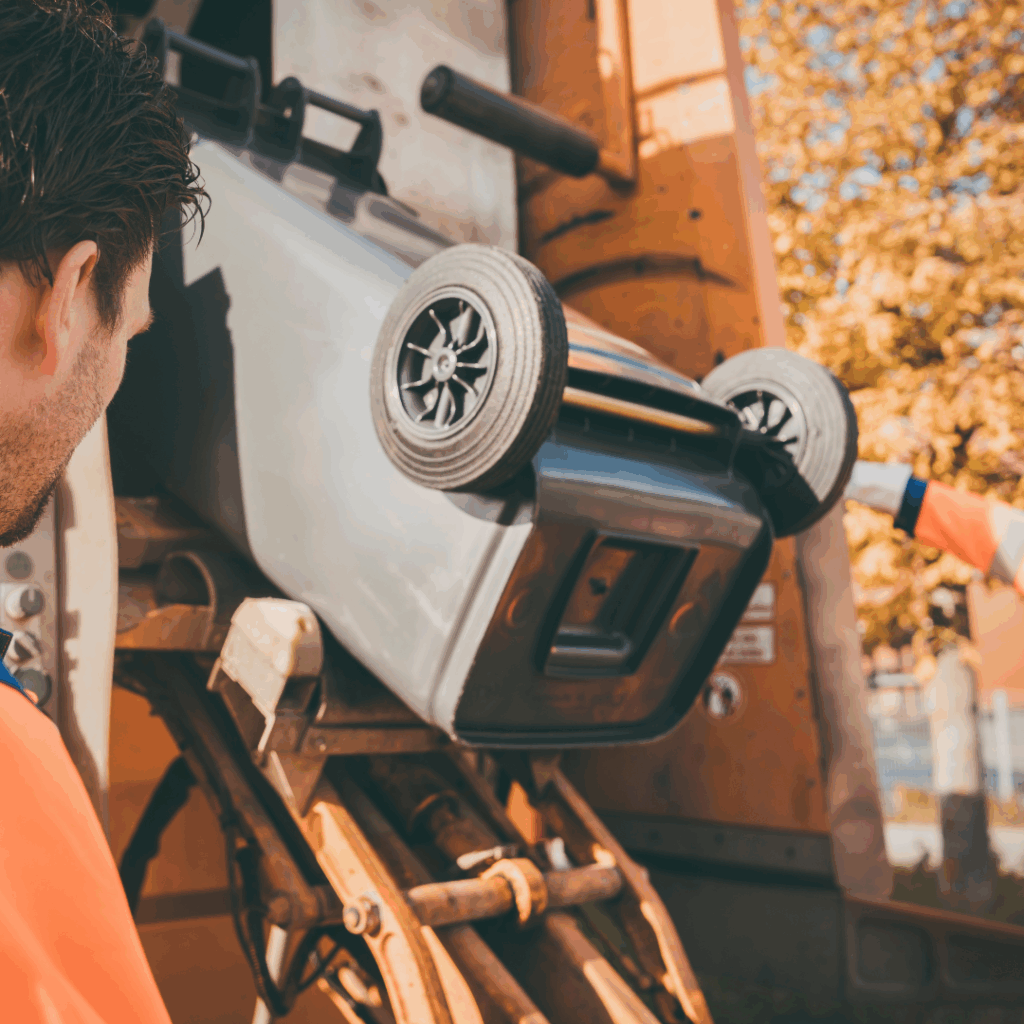What Are Work Injuries?
A workplace accident is defined as an accident arising in the course of employment which results in personal injury*.
Workplace accidents are governed by the Safety, Health, and Welfare at Work Act 2005. The Act provides that every employer must do everything, as far as reasonably practicable, to ensure the safety, health, and welfare of their employees.
Personal injury is further defined in the Act to include:
- Any injury, disease, disability, occupational illness, any impairment of physical or mental condition
- Any death
that is attributable to work.
Why Is It Important to Report an Injury at Work?
Reporting your accident and following the correct accident reporting procedure in your workplace is crucial. The accident report form is vital in providing information surrounding the circumstances of the accident, any witnesses to the accident, etc. This information will be used for reference throughout your claim for damages.
Implementing your employer’s accident reporting procedure can also prevent further accidents from occurring under similar circumstances.
Additionally, it is important to report your workplace accident to allow the Health and Safety Authority (HSA) to accurately update its statistics. This allows the HSA to promote safety in the workplace and push further health and safety policies where needed.
The Most Common Accidents in the Workplace
As published in HSA’s Annual Review of Workplace Injuries (2021), manual handling injuries including injuries sustained while lifting, slips, trips and falls were reported to have been the most common types of work-related injuries.
Additional common causes of injuries in the workplace include:
-
Building Site Accidents
Construction employers must ensure the safety of their employees. They must ensure the place of work is safe, safe access to and from the site, the relevant training, and that every possible measure is taken and equipment is provided to mitigate any risks on a building site.
-
Warehouse Accidents
Warehouses contain many hazards and your employer has a duty to conduct regular risk assessments to identify any potential hazards to ensure your safety. Common warehouse accident claims include manual handling injuries, slips, trips, falls, vehicle collisions among others.
-
Agency Worker Injury
While agency workers may not have the same employment rights as permanent workers, their rights in relation to working and employment conditions are the same due to the EU Directive on Temporary Agency Work.
-
Retail Staff Injury
Retail employers are also required to ensure their employees safety at work and to provide their employees with any necessary protective equipment and tools they may require.
-
Farm Accidents
Agricultural workers are more than twice as likely to suffer an injury at work than in other sectors. Under the 2005 Act, farmers are required to have a safety statement in place due to the increased risks of the working environment.
-
Industrial Accidents
Industrial workplaces tend to have strict accident reporting procedures in place, and it is important that you comply with your obligations if you suffer an injury.
-
Roofer Injury
The nature of this occupation carries with it a certain level of risk. The Health & Safety Authority Code of Practice for Safety in Roofwork gives practical guidelines for those involved in the roofing industry to protect roofers. If you have been involved in a roofing accident, your solicitor will assess whether the accident was caused by the employer, contractor, or supervisor breaching the regulations.
-
Waiter Accidents
Common injuries waiters suffer include slips, trips and falls, burns and scalds, and cuts caused by knives and broken glass. Restaurant owners are obliged to perform regular risk assessments under the 2005 Act If they neglect their duty of care, you must still prove that the accident occurred as a direct result of that negligence to make a waiter accident claim.
-
Healthcare Worker Injury
If you suffer an injury while carrying out your duties as a healthcare worker, you may be able to claim, particularly if your employer has not provided adequate staff, properly trained co-workers, or appropriate lifting equipment. Healthcare worker injury claims are often made because of injuries suffered while turning or lifting patients.
-
Migrant Worker Accidents
Migrant workers are statistically more likely to work in industries with a higher risk profile such as agriculture, construction etc. Migrant workers tend to be more hesitant in bringing a claim for compensation due to the difficulties of being in a foreign country.
These are only some of the common accidents that occur in workplaces every day.
Why do People Not Report Their Accidents or Injuries?
Many employees will downplay the seriousness of an incident where the accident does not result in immediate significant damages, which can lead to a harmful workplace culture and result in larger safety issues down the line.
One of the largest concerns for employees when deciding whether to make a claim for compensation against their employer is the possibility that their working relationship would be negatively affected.
This highlights the need to engage with an experienced solicitor who can progress the matter effectively and professionally to reach a satisfactory resolution.
Which Workplace Accidents are Reportable?
The 2016 Regulations require that all accidents and dangerous occurrences are required to be reported to the HSA where the employee has been unable to fulfil their duties for three consecutive days.
However, only fatal and non-fatal injuries are reportable to the HSA. Diseases, occupational illnesses or any impairments of mental condition are not reportable.
Is It a Legal Requirement to Record Accidents at Work?
Yes, in line with the 2016 Regulations, an employer is legally required to keep a record of accidents in the workplace for a period of ten years from the date of the incident.
Who is Responsible for Reporting Accidents in the Workplace?
Following a workplace accident, it is the employer’s responsibility to report the accident to the HSA. Employer’s will often nominate a ‘responsible person’ who will likely be the manager and/or supervisor working at the time of the incident.
Who Do You Report Accidents to in the Workplace?
An employee involved in a workplace accident should always report the incident to their manager and/or supervisor. If this is not possible, the employee should follow the accident reporting procedure in the workplace and report it to their superior at their earliest opportunity.
Who Investigates Accidents in the Workplace?
After the incident has been reported to the HSA, they will upload the information for their own statistical use. Further information may be requested from the employer in order to complete an onsite investigation following receipt of the report. The HSA may preserve certain aspects of the workplace following an investigation, for example if the accident involved machinery, the HSA may preserve the machinery for further investigation.
How to Report Accidents in the Workplace
Each workplace should have their own accident reporting procedure, and this should be followed by each employee should they find themselves involved in a workplace accident.
Where Must Records of Accidents Be Recorded in the Workplace?
The 2016 Regulations states that an employer is required to keep a record of accidents in the workplace for a period of ten years from the date of the incident, and this record shall be kept at the place where the work to which it relates is carried on or, if this is not practicable, at the usual place of business of the responsible person.
What Could my Settlement be Worth?
The value of your claim would be dependent on the extent of your injuries and all accident circumstances should be considered.
A recent successful claim for compensation for a former ESB employee was made by HOMS Assist. Mr. Corcoran suffered a horrendous attack from a large stag on Kilduff Mountain in Co. Tipperary while working on an ESB mast in September 2016 and suffered a brain injury resulting in major cognitive difficulties, memory and hearing loss, balance impairment, concentration difficulties together with soft tissue injuries as a result of this event.
This case highlighted the duty of care and the responsibility that employers have for their employees and following his six-year legal battle, his action against the ESB was settled for a substantial sum and this client now has the financial support for the care he requires for his life-changing injuries and some closure from this traumatic event.
How to Make A Work Injury Claim
Firstly, it must be established whether an injury has occurred. To bring a workplace injury claim:
- You must have suffered an injury, whether physical or psychological, during the course of your employment.
- Once it is clear you have suffered an injury, you should seek the relevant medical treatment for said injury. All details of the accident should be recorded and reported to the relevant manager/supervisor at the time, including any witnesses of the incident.
- You should then contact an experienced solicitor at HOMS Assist and get them involved at an early stage to advise you and to guide you through the process.
- The Personal Injury Assessment Board assesses most personal injury claims before legal proceedings are issued and your solicitor will guide you through this process and beyond.
If you or your loved one has suffered from a workplace accident, you may be entitled to an injury at work claim.
With over 50 years of expert legal experience advising clients, we are here to provide expert advice when you need it most.
Call us today on 1800 207 207 or contact us.









